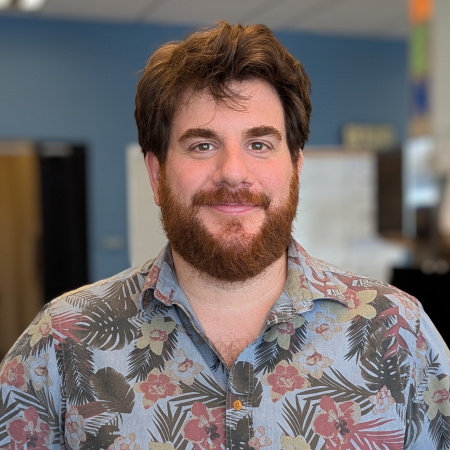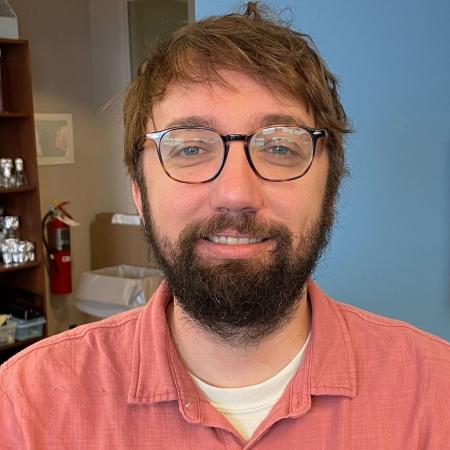Infectious diseases continue to exact a high toll on the health of New Yorkers, and the potential for intentional use of infectious agents as biological terror agents also cannot be ignored. Infectious agents may be bacteria, fungi or viruses, and each requires a different treatment modality.
The threats to public health are especially high from newly emerging pathogens and well-known infectious agents that have become resistant to existing drug therapies, because the tools available for detection and/or treatment of these agents may be limited. In addition, medical advances in cancer treatment and organ transplantation have increased the number of people with immune deficiencies who are especially vulnerable to infectious agents.
The infectious disease process involves a complex interaction between the infecting agent(s) and the host immune responses that are mounted against them. The immune system must respond to each infecting agent with the proper balance of attack and restraint to eliminate the pathogen without causing damage to the host. Our scientific goals are to determine how specific microbial pathogens bypass natural host-defense mechanisms during the disease process, and to identify the components of the immune system that are needed to protect against each agent.
This information is critical for the development of new drugs to combat resistant organisms, vaccines to prevent disease, diagnostic assays to detect and track infectious agents, and biomarkers that correlate with disease susceptibility and/or progression. Investigators address these issues with a variety of molecular, microbiological, structural and immunological approaches.
Associated Researchers

Thomas M. Bartlett, PhD
Cell biology of bacterial pathogens
We study the molecular basis of bacterial growth and cell shape determination in critical bacterial pathogens with “unusual” shapes. Our research helps us to understand how bacterial shape contributes to pathogenesis, and identifies vulnerabilities in understudied bacterial growth plans.

Michael J. Boucher, PhD
Molecular Genetics of Fungal Pathogens
Human fungal infections pose a massive public health burden yet remain severely understudied. Our lab develops and utilizes high-throughput genetic approaches to understand how fungal pathogens cause disease.

Sudha Chaturvedi, PhD
Director, Mycology Laboratory
We develop new technologies for fungal diagnostics and pathogenic mechanisms of Cryptococcus gattii and Pseudogymnoascus destructans, the etiologic agents of human cryptococcal meningitis and bat white nose syndrome, respectively.

April D. Davis, DVM, PhD
Director, Rabies Laboratory
We focus on developing and improving diagnostic tools for rabies. Additional research programs focus on studying rabies in bats within the laboratory and in field environments.

Todd Gray, PhD
Molecular Genetics of Mycobacteria
We use innovative molecular genomic approaches to address fundamental questions of mycobacterial biology. Our findings shed new light on the evolution and function of mycobacterial genomes, accelerating tuberculosis research.

William T. Lee, PhD
Immunological Memory and Diagnostic Immunology
The goal of our research is to characterize the differences between antigenically naive (virgin) and memory T helper cells at the developmental, phenotypic and functional levels.

María C López, PhD
Clinical and Experimental Immunology
Our work strives to further the knowledge of the mechanisms behind mucosal immune alterations that can lead to food allergies and malnutrition.

Nicholas J. Mantis, PhD
Chief, Microbial Pathogenesis and Immunology
We study how serum and mucosal antibodies protect mammalian hosts from microbial pathogens and toxins. We are interested in next-generation vaccines and adjuvants to combat biothreat agents and enteric diseases.

Kathleen A. McDonough, PhD
Director, Division of Infectious Disease
We study gene regulation in the context of bacterial pathogenesis, with a focus on two pathogens: Mycobacterium tuberculosis, the bacterium that causes TB, and Yersinia pestis, the etiologic agent of bubonic and pneumonic plague.

Anil K. Ojha, PhD
Mycobacterial Persistence and Pathogenesis
We investigate the influence of biofilm growth on the mechanisms of pathogenesis, persistence and drug tolerance in mycobacterial pathogens, with particular emphasis on Mycobacterium tuberculosis.

Jon Paczkowski, PhD
Microbial Signal Transduction and Cell-cell Communication
We seek to understand bacterial communication by investigating how bacteria interpret autoinducers and elicit appropriate gene expression, and, more globally, to understand how all organisms decode environmental stimuli.

Joseph T. Wade, PhD
Microbial Gene Expression
We study gene regulation in bacteria, with a focus on genome-scale approaches. We are interested in regulation of transcription, the function of non-coding RNAs, and leaderless translation initiation.